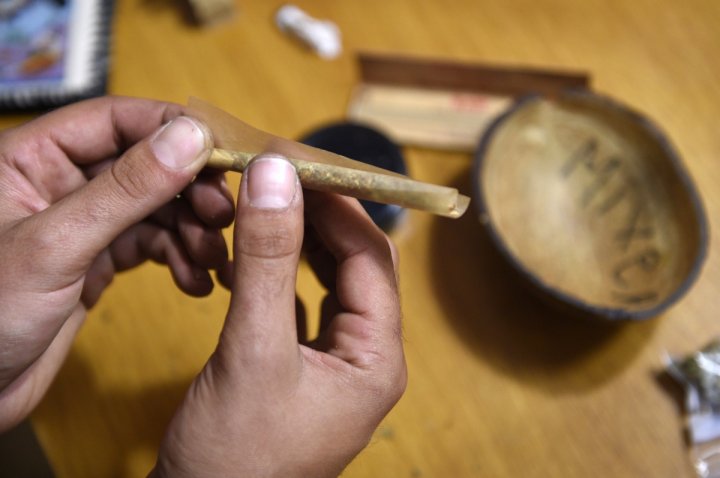Research debunks myth that cannabis use in your youth makes you “stupid”
- Recent studies have found no causation between using cannabis and a decrease in intelligence
- There is still a risk for those who use cannabis “heavily” as an adolescent
- But no evidence to suggest using cannabis in moderation, even as a youth, leads to a drop in IQ
- Studies have found cannabis to actually be beneficial for the mind, with the ability to possibly prevent dementia in the elderly
One of the most common myths used by the anti-cannabis lobby is that using cannabis, especially as a teenager, can hinder the development of the mind.
One study, published in the Proceedings of the National Academy of Sciences in 2012 by Duke University, claimed that persistent, heavy use of cannabis during adolescence was associated with a decrease in IQ levels.

The study, conducted over a 20-year period, interviewed test subjects at ages 18, 21, 26, 32, and 38. Neuropsychological testing was conducted at age 13, before initiation of cannabis use, and again at age 38 y, after a pattern of persistent cannabis use had developed. According to the study:
“Persistent cannabis use over 20 years was associated with neuropsychological decline, and greater decline was evident for more persistent users.
“This effect was concentrated among adolescent-onset cannabis users, a finding consistent with results of several studies showing executive functioning or verbal IQ deficits among adolescent-onset but not adult-onset chronic cannabis users, as well as studies showing impairment of learning, memory, and executive functions in samples of adolescent cannabis users.”
The validity of this research remains questionable, as the study had a very small sample of heavy users (38), leading researchers to question how generalisable the results were.
A counter-study, published in the same journal, found that the Duke University study had also neglected to take into account a wide range of confounding factors which could also affect the development of the mind during adolescence, for example: alcohol and tobacco use, socioeconomic status and mental illnesses.

“These findings therefore suggest that cannabis use at the modest levels used by this sample of teenagers is not by itself causally related to cognitive impairment.”
– Are IQ and educational outcomes in teenagers related to their cannabis use? A prospective cohort study
Another study, conducted here in Britain, also challenged the theory that teenage use of cannabis leads to a diminished IQ level.
Researchers recorded IQ scores at both 8 and 15 years of age for an available 2235 participants.
After adjusting for a range of confounding factors, such as substance abuse (such as alcohol and tobacco), mental health and the mother’s health, researchers discovered:
“cannabis use by the age of 15 did not predict either lower teenage IQ scores or poorer educational performance.
“These findings therefore suggest that cannabis use at the modest levels used by this sample of teenagers is not by itself causally related to cognitive impairment.”
The study’s researchers determined that their results don’t necessarily invalidate the findings of the Duke University paper.
But, by focusing on persistent heavy use over a long period of time, rather than only low to moderate levels of adolescent use, the researchers concluded that:
“While persistent cannabis dependence may be linked to declining IQ across a person’s lifetime, teenage cannabis use alone does not appear to predict worse IQ outcomes in adolescents.”
Researcher published in the National Center for Biotechnology Information, investigated the impact adolescent cannabis use has on intelligence by comparing twins who did and did not use cannabis as a youth.

Again, they debunked the myth that cannabis use as an adolescent leads to a decrease in potential IQ. Researchers found that those who used cannabis did not experience consistently greater cognitive deficits than the others. According to the study, the Duke University paper:
“fails to support the implication by Meier et. al. [the authors of the Duke study] that marijuana exposure in adolescence causes neurocognitive decline.
“…children who are predisposed to intellectual stagnation in middle school are on a trajectory for future marijuana use.”
Essentially, rather than cannabis making kids less intelligent, it may be that children with poor academic performances or general lower intelligence, will be more inclined to try cannabis at some point during their lives.
If cannabis use was responsible for cognitive decline, as the Duke University paper suggested, then you would expect to find that the more cannabis a person uses, the less intelligent they become. But, this paper found that heavier cannabis use was not associated with greater decreases in IQ.

While proponents of prohibition will try and maintain that cannabis use can and will negatively impact your mental health, research is continuing to debunk these theories.
Researchers at the University of Bonn in Germany even found THC (the chemical in cannabis responsible for getting you high) actually helps the mind in the elderly rather than hurt it.
Researchers gave a low dose of THC (tetrahydrocannabinol) to mice of varying ages as part to investigate brain systems involved in the ageing process, finding that cannabis can actually reverse ageing processes in the brain.
While research is finding new and exciting ways in which cannabis helps the human body, rather than hurt it, it must be remembered that it is still a drug, and abuse of any substance can lead to an unbalanced, and potentially unhealthy, life.
But with more and more research, the more and more we understand cannabis. The more we understand cannabis, the better we can regulate it.
The British Government will soon have no choice but to legalise cannabis across the board, with nearly every single argument they put forward being debunked by leading researchers.
